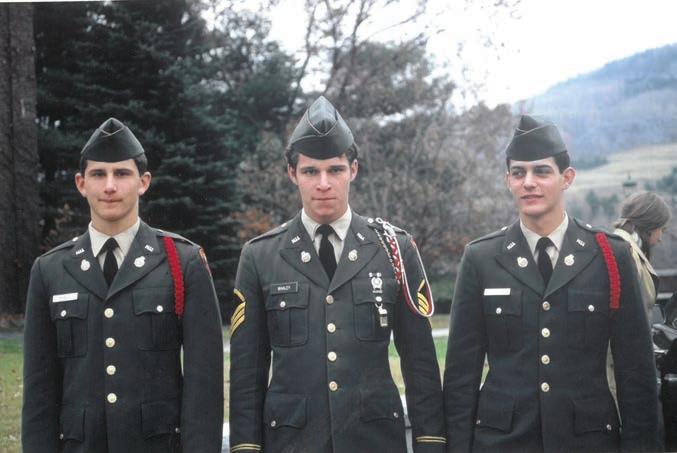NEWS FROM THE HILL
LEADERSHIP
THE ETHICAL DECISION-MAKING OF YOUNG LIEUTENANTS Army ROTC instructor and Special Forces veteran Sean L. Beebe M’12 on the paramount importance of teaching young military officers ethical leadership
A
merica’s Army conducts a wide variety of missions across the globe and here at home. We have combat missions in the Middle East, humanitarian missions in Africa, and partner missions in Europe, Asia, and South America. We are expected to train and prepare for every situation we may face both abroad and at home; and, while my opinion is admittedly biased, I think we do an admirable job. We spend an inordinate amount of time planning and preparing for missions, down to the smallest detail. It shows in our ability to go anywhere and do anything our country asks of us. The missions we are tasked to accomplish are complex, multifaceted, and ambiguous many times over. It is difficult sometimes to tell what the “right” thing to do is. Ultimately, we are authorized to conduct our missions because of one thing— trust. Our country places its trust in our military to win our wars, support our allies overseas, and maintain peace in areas of the world where peace is fleeting or difficult to come by. The trust from the nation begins with our young officers. Above all else, our young military officers must be individuals worthy of the trust our nation bestows upon them. They must be capable of making ethical decisions under ambiguous circumstances. This is easier said than done in a world increasingly marked by cynicism, distrust, pessimism, and sarcasm. There is no shortage of news stories of military individuals who fell short and damaged trust. A young officer doesn’t just have to be
12
N O R W I C H R E C O R D | FA L L 2 0 2 1
trustworthy to the nation. He or she must also balance the trust of superior officers, subordinates, and peers, as well as the trust of foreign nationals with whom they will come into contact many times throughout their career. Frequently, these trust relationships or loyalties can conflict, and a person must have the integrity and moral fortitude to hold on to their belief systems, while at the same time recognize inherent cultural bias. Ethical standards differ across the world, and being flexible in our viewpoints, while still maintaining the ethical standards expected and outlined in our military, can be challenging. The pressure for a young officer to accomplish a mission can also be quite daunting. Sometimes the temptation to cut corners or use the “easy way” overcomes the desire to do what’s right. The difficulties I’ve described are the very reasons I place such an emphasis on ethical decision-making for our cadets. Not everyone has the same upbringing or background. Training on ethics is the method our military uses to ensure all our officers understand the moral expectations of future officers (and citizens). Classes given to ROTC students explain the military’s expectations and standards related to ethical behavior.
“The trust from the nation begins with our young officers. Above all else, our young military officers must be individuals worthy of the trust our nation bestows upon them.”















